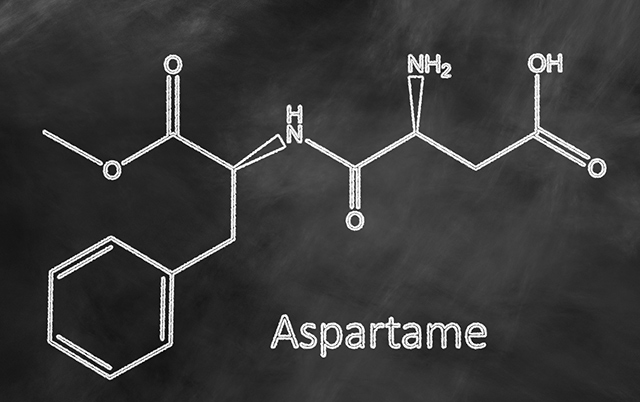
Neurotoxins are substances that are capable of harming your brain and central nervous system. They are often added to processed food items for many reasons. Sometimes, they are used to enhance flavor. Other times, they can be used as substitutes for other ingredients. There are also some instances wherein the neurotoxins are not added intentionally. In any case, the bottom line remains the same. If your food contains these substances, you should avoid eating them as much as possible. (Related: 5 neurotoxins found in your favorite foods.)
Be vigilant in checking the ingredients on food labels. Ditch those unhealthy foods if they contain any of these five neurotoxins:
Aspartame
Aspartame is an artificial sweetener that is often used as an alternative to sugar. If you see any sweet foods or beverages that are labeled as "sugar-free," you can normally expect aspartame to be there in its place. Aspartame is made of two main components, namely aspartic acid and phenylalanine, both of which are naturally occurring amino acids. However, large quantities of these are dangerous to your health. Aspartic is a brain chemical, but excessive amounts of it turn it into excitotoxins that can literally stimulate or "excite" brain cells to death. On the other hand, large amounts of pheylalanine make it a neurotoxin that inhibits the brain's uptake and conversion of another amino acid, tryptophan. When you eat aspartame, your body processes it and breaks down part of it into methanol, an extremely poisonous wood alcohol. While in your body, methanol can also turn into formaldehyde, a known carcinogen and neurotoxin.
Monosodium glutamate
Monosodium glutamate (MSG) is a flavor-enhancing food additive that is similar to aspartame except that it makes food taste salty, rather than sweet. It is derived from the amino acid, glutamate, which also happens to be one of your brain’s most important neurotransmitters. It can either be bound to other amino acids or remain as free glutamate. Our bodies digest bound glutamate slowly, but free glutamate is rapidly digested. MSG is purely free glutamate and too much of it lets the glutamate act as a dangerous excitotoxin.
Diacetyl
If you love the taste of microwaved popcorn, it's probably due to the addictive butter flavoring, diacetyl. This neurotoxin is capable of crossing the blood-brain barrier, which is meant to keep harmful substances from entering the brain. Eating a lot of diacetyl can cause beta-amyloid clumping, which is one of the significant indicators of Alzheimer's disease. The next time you plan on eating popcorn, be sure to read the label. If it says "artificial butter flavor," then you can expect it to contain diacetyl. Alternatively, you can still get your popcorn fix by popping it on your own and using real butter.
Aluminum
Aluminum is commonly used as a food additive in baking powder and anti-caking agents. It can sometimes also be present in your drinking water. Another way you can be exposed to it is when you prepare foods using aluminum foil, cans, or cookware. Over time, constant exposure to it can cause considerable amounts of aluminum may accumulate in your brain. Large concentrations of aluminum in the brain have often been linked with Alzheimer's disease.
Mercury
Unlike the other neurotoxins, mercury is a substance that is not intentionally added to food items. Instead, it can often be found in water sources, where it accumulates in fish and seafood. Of course, it would be difficult to simply avoid eating fish or seafood altogether, especially considering fish are excellent sources of essential omega-3 fatty acids. However, we can instead choose to eat fish that are low in mercury content, such as wild-caught Alaskan salmon, herring, mackerel, and sardines.
Learn more about the neurotoxin aspartame by visiting Aspartame.news.
Sources include:
Please contact us for more information.






















